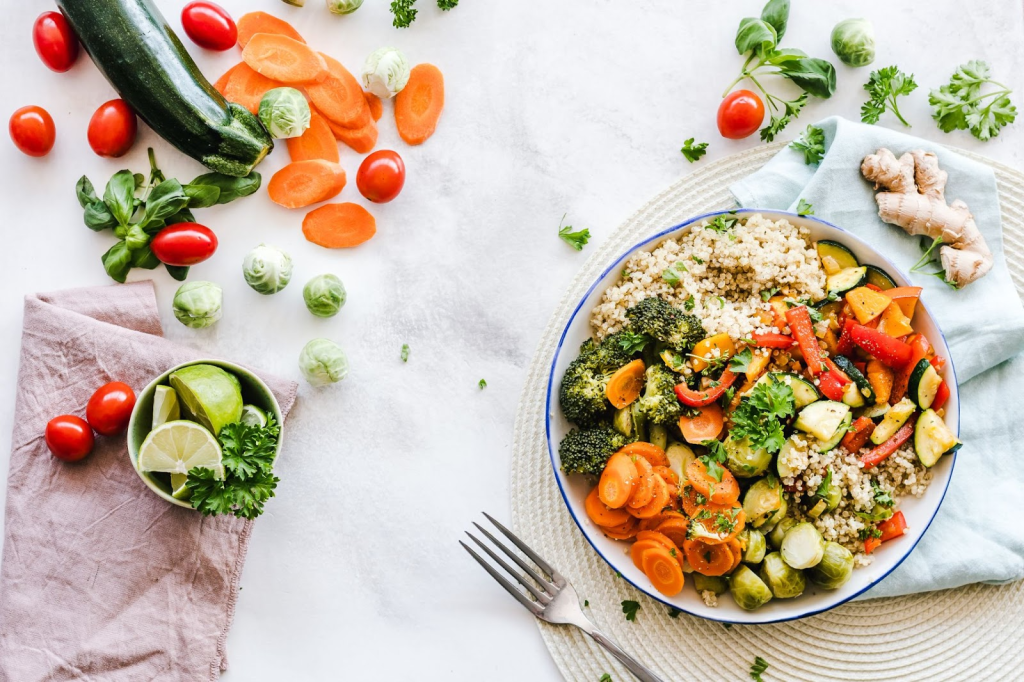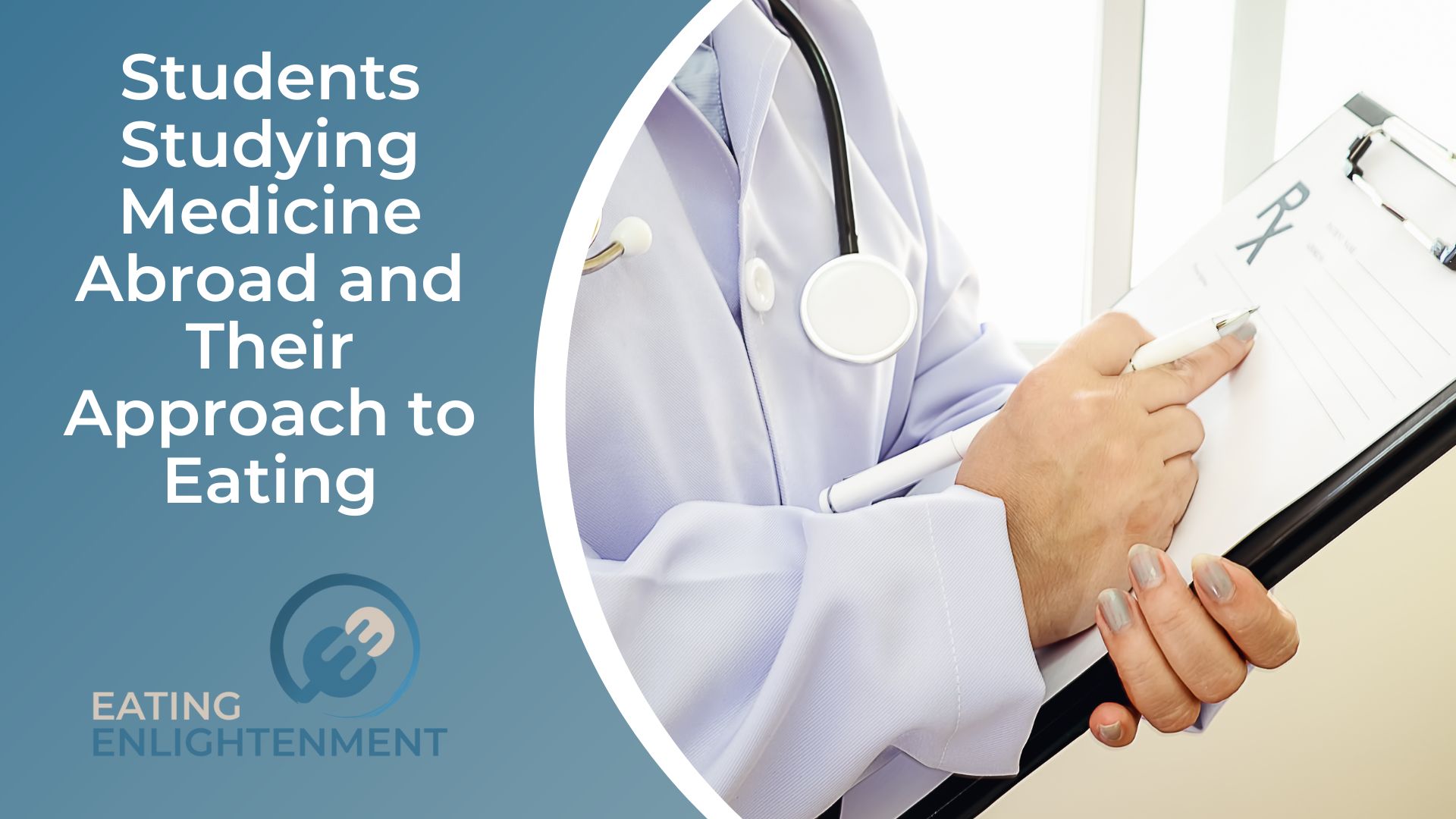Studying medicine in the EU holds immense importance as it provides students with valuable opportunities for cultural exchange, global perspectives, and exposure to diverse healthcare systems.
Beyond the academic realm, studying abroad also significantly influences students’ eating habits. Being immersed in a different country exposes students to a variety of cuisines, ingredients, and culinary traditions, thereby broadening their culinary horizons.
Students may adopt new dietary practices, incorporating healthier options and experiencing the benefits of a balanced diet. However, they may also encounter challenges in navigating cultural differences, language barriers, and limited time for meal planning, which can impact their eating habits.
Understanding the influence of studying abroad on students’ eating habits is crucial for fostering a healthy and well-rounded educational experience.

Challenges Faced by Students Studying Medicine Abroad
When studying abroad, students often encounter significant challenges related to their eating habits.
One such challenge is the cultural differences in food choices and availability. Different countries have diverse culinary traditions, ingredients, and dietary customs, which may be vastly different from what students are accustomed to. This can lead to a need for adaptation and adjustment to new flavors and food options.
Additionally, language barriers can hinder effective communication about dietary needs. Expressing specific dietary restrictions or preferences becomes challenging when students are not fluent in the local language. This can result in misunderstandings or difficulties in finding suitable meals.
Moreover, the demanding nature of studying medicine abroad leaves students with limited time for meal planning and preparation. Busy academic schedules, clinical rotations, and extracurricular activities can make it challenging to prioritize healthy eating. Students may resort to quick, convenient options, which may not always be the most nutritious.
Overcoming these obstacles requires resilience, resourcefulness, and proactive efforts to ensure a well-balanced diet while studying medicine abroad.
Adaptation and Adjustment
To navigate the challenges of studying medicine abroad and adapt to new eating habits, students employ various strategies.
Firstly, they embrace the opportunity to explore the local cuisine and integrate new foods into their diets. This allows them to immerse themselves in the culture and expand their culinary repertoire.
Secondly, students often seek out familiar foods and ingredients from their home countries. This not only provides a sense of comfort and nostalgia but also ensures they have access to familiar dietary staples.
Additionally, forming student communities dedicated to sharing recipes and meals is a common practice. These communities foster a supportive environment where students can exchange culinary tips, discover new recipes, and collaborate on meal preparation. It not only encourages healthy eating but also creates a sense of camaraderie and a platform for cultural exchange.
Through these approaches, students studying medicine abroad can strike a balance between embracing new culinary experiences and maintaining connections with their own cultural and dietary backgrounds.
Health and Nutrition Considerations
When studying medicine abroad, students recognize the importance of understanding their dietary requirements for optimal performance. As future healthcare professionals, they are aware of the direct impact nutrition has on their physical and mental well-being; especially if they consume study supplements. By educating themselves about the nutrients necessary for sustained energy, cognitive function, and overall health, students can make informed choices when it comes to their diet.
However, balancing academic demands and healthy eating habits can pose a significant challenge. The rigorous nature of medical studies often leads to time constraints and high-stress levels, making it tempting to opt for convenient but unhealthy food choices. Students must prioritize their well-being and develop strategies to incorporate nutritious meals into their daily routines. This might involve meal prepping, setting aside dedicated time for grocery shopping, and opting for quick and healthy snacks during busy study sessions.
Access to healthcare and support is crucial for students to maintain good health while studying abroad. They may encounter unfamiliar healthcare systems and face challenges in accessing medical services.
Establishing a network of healthcare providers who understand the unique needs of international students can alleviate concerns and ensure prompt and appropriate medical care when needed.
Additionally, universities and student support services are vital in promoting and facilitating student health. Providing resources such as counseling services, nutrition workshops, and fitness facilities can empower students to prioritize their well-being and make informed decisions about their health.
By understanding their dietary requirements, striking a balance between academics and healthy eating, and having access to healthcare and support, students studying medicine abroad can optimize their physical and mental health, enhancing their overall educational experience.
Strategies for Maintaining a Healthy Diet
To maintain a healthy lifestyle while studying medicine abroad, students adopt various strategies. Firstly, they prioritize meal planning and preparation techniques. By dedicating time to plan their meals in advance, students can ensure a well-balanced diet and avoid relying on unhealthy convenience foods. They may incorporate batch cooking, portion control, and diverse recipes to support their nutritional needs.
Secondly, students can make the most of local resources to access healthy food options. They can explore farmers’ markets, local grocery stores, and specialty shops to find fresh produce, whole grains, and lean proteins. Embracing the local food culture allows them to discover new nutritious ingredients and traditional dishes that align with their dietary goals.
In addition to proper nutrition, students understand the importance of incorporating exercise and physical activity into their daily routines. They may join local fitness centers, participate in outdoor activities, or engage in group exercise classes. Regular physical activity not only promotes physical fitness but also serves as a stress-relief mechanism and enhances overall well-being.
By implementing effective meal planning techniques, utilizing local resources for healthy food options, and incorporating exercise into their daily routines, students studying medicine abroad can maintain a healthy lifestyle that supports their academic success and overall health. These habits contribute to their personal growth, resilience, and ability to excel in their medical education journey.
Case Studies and Personal Experiences
Interviews with students studying medicine abroad provide valuable insights into their experiences and shed light on various aspects of their journey.
For example, one student may discuss how they initially struggled with adapting to a new cuisine but eventually embraced the local food culture, incorporating nutritious ingredients and traditional dishes into their diet.
Another student may share their success story of overcoming language barriers by seeking out language courses and utilizing translation apps to communicate their dietary needs and preferences effectively.
In terms of challenges faced, a student might talk about the limited time for meal planning and preparation due to demanding academic schedules. To overcome this, they may describe how they implemented time-saving strategies such as meal prepping on weekends or utilizing meal delivery services that offered healthy, ready-to-eat options.
Additionally, interviews may highlight the importance of a supportive network. A student may discuss how they joined student communities or formed study groups, allowing them to share recipes, exchange cooking tips, and provide emotional support to fellow students facing similar challenges.

Through interviews with students studying medicine abroad, success stories, and lessons learned, we gain a deeper understanding of the unique experiences, challenges, and strategies employed by these individuals. These real-life examples serve as inspiration for others and provide practical insights into thriving academically and maintaining a healthy lifestyle while studying medicine abroad.
Conclusion
This article has highlighted key points regarding students studying medicine abroad and their approach to eating. We explored the challenges faced, such as cultural differences, language barriers, and limited time for meal planning. However, we also discussed the strategies employed by these students, including the exploration of local cuisine, seeking familiar foods, and forming student communities. Furthermore, we emphasized the importance of understanding dietary requirements, balancing academic demands and healthy eating habits, and accessing healthcare and support. Overall, students are encouraged to prioritize their health and well-being throughout their educational journey.
Lastly, we recognized the remarkable resilience and adaptability demonstrated by students studying medicine abroad. Their ability to overcome challenges and make the most of their experiences showcases their determination and strength. By embracing these principles, students can thrive academically and personally while pursuing their dreams of becoming healthcare professionals globally.



